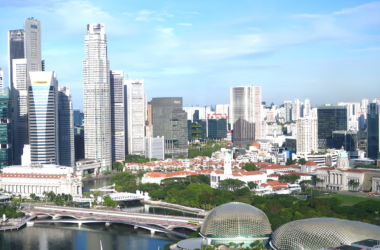Foreign Minister Retno LP Marsudi asserted that the nexus of democracy and technology should only be a force for good and that a collective effort would have to be made to mitigate the risks posed by the use of AI.
JAKARTA – Transformative technologies like artificial intelligence (AI) must be used to enhance global democracy rather than be weaponized for manipulation and disinformation, Foreign Minister Retno LP Marsudi has said, amid criticism of the country’s scant national regulations on the issue.
With the high rate of technological advancement, experts say officials must quickly issue technical regulations on AI to limit the risk that it could be misused to harm democratic institutions and processes.
On the first day of the Summit for Democracy conference hosted by South Korea on Monday, representatives from over 100 countries gathered mostly online to discuss the global trend of democratic backsliding.
The third installment of the conference focused on digital threats such as misinformation and deepfakes, pieces of video or audio made with AI but broadcast as authentic.
The meeting came as 60 countries head to the polls this year to elect new leaders, putting candidates and voters across the world in danger of technological disinformation.
Read also: Governments race to regulate AI tools
A number of nations have been developing regulations on the use of AI amid mounting concerns about its unprecedented effects on politics, privacy and militaries.
Asserting that the nexus of democracy and technology should only be a force for good, minister Retno said on Monday that a collective effort would have to be made to mitigate the risks posed by the use of AI.
“Both democracy and digital technology are transformative. Both change the way we make important decisions,” Retno said in Seoul. “AI can be a double-edged sword. It can be used as a tool for democracy and also as a tool for manipulation and disinformation.”
In recent years, a number of observers have expressed concern about AI’s ability to harm democratic processes and peace.
Such concerns led tech companies, including OpenAI, Google and Meta, to voluntarily sign an accord in Germany in early February pledging their commitment to stopping the misuse of AI through prevention, detection and responsive protection, among other efforts.
In Indonesia, deepfake videos circulated on social media several months before the February general election. One depicted a hyper-realistic likeness of President Joko “Jokowi” Widodo delivering a full speech in Mandarin.
Retno said Jakarta was committed to ensuring that technological advancements remained under control.
“Transformative technologies such as AI must be navigated by and for the interests of the many,” she said. “Indonesia has introduced regulations on AI ethics, both at the national level as well as the ASEAN level.”
Catching up with tech
Yet experts say prevailing AI regulations are still far from sufficient to safeguard Indonesian democracy.
The country’s only regulation on AI is a 2023 Communications and Information Ministry circular that provides non-binding guidelines that seek to emphasize ethical values in the use of technology, such as inclusivity, security, credibility and accountability.
With few technical details and no punitive measures, analysts slammed the regulation as ineffective and toothless. They urged the government to act fast to establish regulations on critical infrastructure, such as a law on cybersecurity.
In January, the communications ministry said it was planning to develop a new, more technical and binding regulation on AI, aiming for its completion by the end of the year. But some of ministry officials expressed their skepticism about meeting such a short deadline.
Read also: Indonesia looking to introduce binding AI regulation this year
“We need a binding regulation, whether it be in the form of a ministerial regulation, presidential regulation or law,” said Wahyu Djafar, executive director of the Institute for Policy Research and Advocacy (ELSAM), on Tuesday.
“And we need to do it fast so that our laws will not lag behind technological advancements,” he continued.
He said political parties had employed AI in their campaigns for the February general election, including to create visual content for use online and on campaign banners. It was likely that the technology would be employed further to advance political agendas, he added.
“If being made egalitarian in nature, AI can actually contribute to the democratization process, as anyone can easily interact with it to seek out vital information,” Wahyudi said. “But it needs to be regulated so that it can contribute positively to democracy.”







